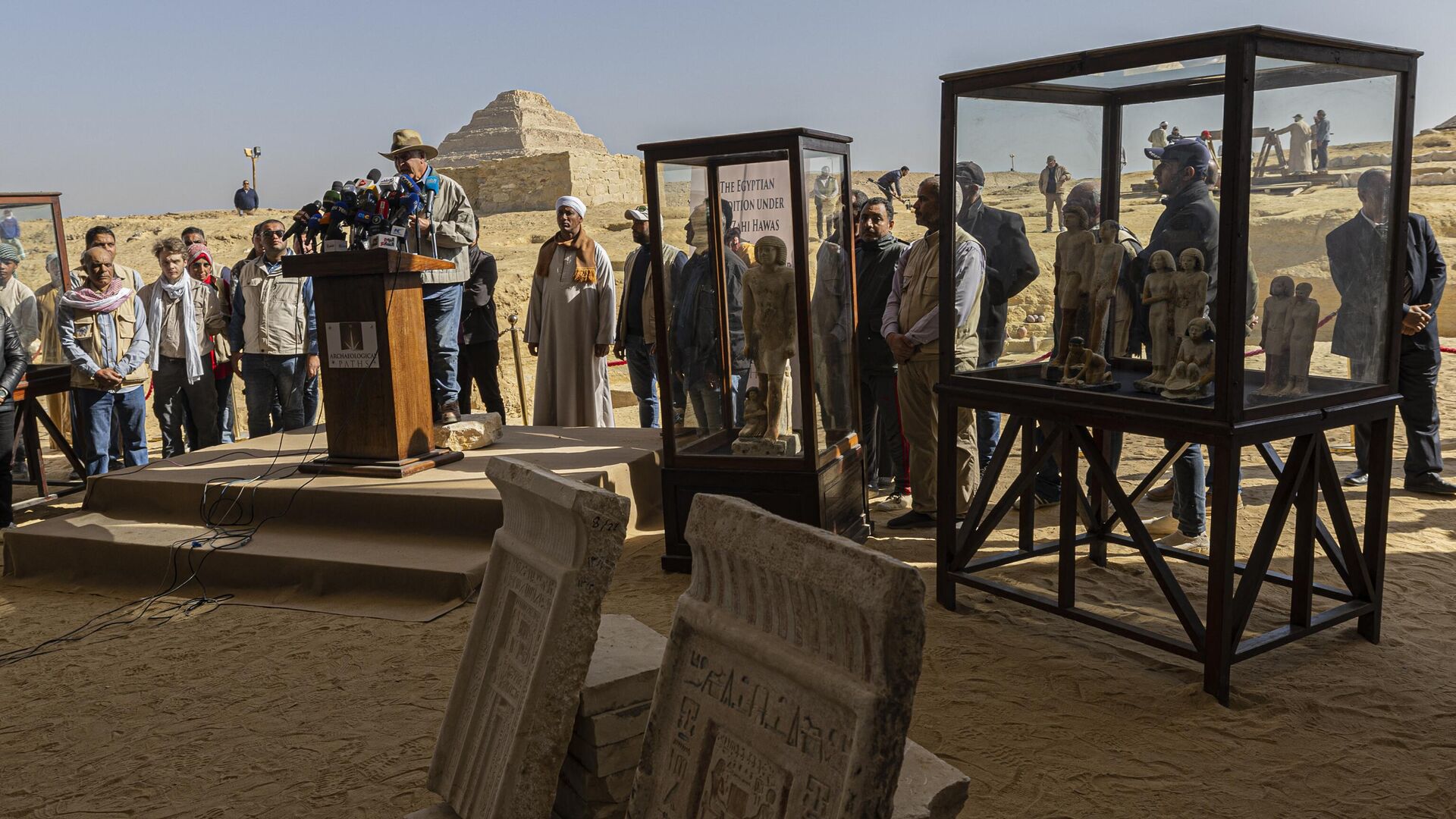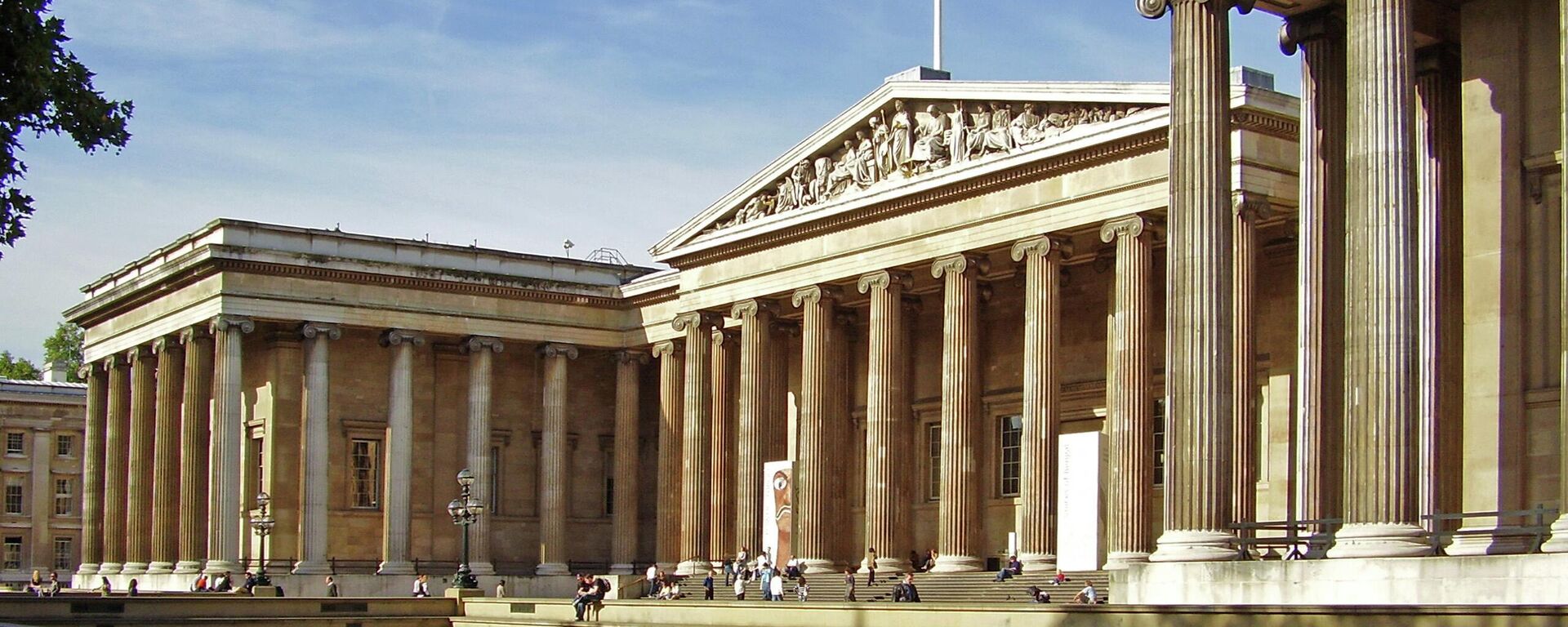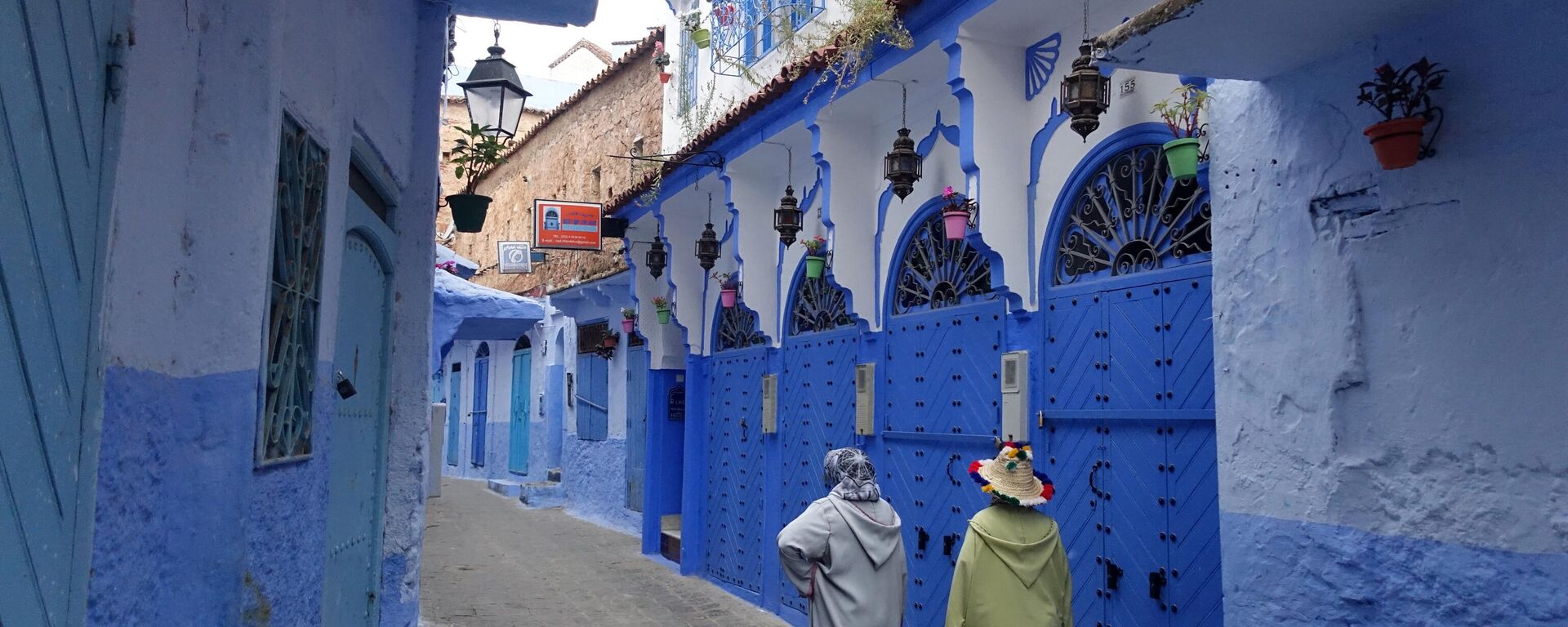Egypt to Convene Meeting of States Affected by Looted Artifacts Scandal: Former Minister
12:39 10.09.2023 (Updated: 18:00 10.09.2023)

© AFP 2024 KHALED DESOUKI
Subscribe
ST. PETERSBURG, (Sputnik) – In August, the British Museum confirmed that 2,000 items from its collection, have been lost, stolen, or damaged. Some of them have reportedly exhibited on internet market. The museum stated that one of its employees had been dismissed and an independent investigation into the case had been launched.
Egypt is planning to convene an international meeting of the countries that have faced artifacts smuggling during the times of imperialism, and has initiated a debate over a safe repository for cultural artifacts in the light of looted artifacts scandal around the British Museum, Zahi Hawass, a former Egyptian minister of antiquities and a prominent archaeologist, told Sputnik.
"We believe that the countries the artifacts of which were stolen from the Western museums, should have a meeting. Egypt is going to call for it. I have spoken to the minister of antiquities of Egypt and he said he was willing to do that," Hawass told Sputnik, commenting on a recent scandal that has plunged Western museums into a crisis of confidence after more than 2,000 artifacts were stolen from the British Museum in London.
The archaeologist also said that the meeting should provide for working out an action plan and requesting interference of United Nations cultural agency UNESCO. Hawass added that international conventions that prohibited acquisition of looted artifacts were not observed by "many Western states."
Hawass said he had called on the British Museum and the Louvre to return the illegally acquired Egyptian artifacts, citing that the venues were "no longer suitable" to display Egyptian artifacts amid the scandal.
Additionally, he has strongly disapproved of the way the British Museum is handling the artifacts, including Egyptian items, saying it is "a crime against the humanity." The expert added that he had launched an online petition to urge the international community to demand the return of two iconic works of art — the Rosetta Stone from the British Museum and the Dendera zodiac currently on display in the Louvre — to Egypt.
"Our monuments left Egypt under imperialism. Today, the museums in Europe and America are still buying stolen artifacts. They still practice imperialism. It would be an important acknowledgment of the commitment of Western museums to decolonizing their collections and making reparations for the past," Hawass noted.
He went on to say that once his petition, which has already garnered the support of over 200,000 people, reaches one million signatures, he will move forward and send the official return request to the museums, adding that once returned, the artifacts would be displayed in the Grand Egyptian Museum, which is expected to officially open between October 2023 and February 2024 in Giza.
At the same time, Luca Balloni, the manager of the Sconci Gallery in Dubai, told Sputnik that the issue of returning artifacts to their countries of origin was a "complex and debated topic," saying that there are arguments for the preservation and exhibition of the artifacts in the Western museums, since they have more resources for museum maintenance and broader abilities to share global culture and art, as well as effectively preserve and study the ancient works of art.
"There are also arguments in favor of the preservation and exhibition of these artifacts in Western museums. This perspective argues that museums offer a unique opportunity for the sharing of global culture and art. Furthermore, cultural institutions in Western countries often have the financial and technological resources to properly conserve and study these artifacts, which may not be guaranteed in the nations of origin," Balloni said.
He also said that many experts, including Hawass, emphasize the need to return the artifacts that were stolen as part of a process of decolonization and historical restitution, and called the move "an act of justice" toward the affected nations.
"The argument in favor of restitution is based on principles of historical fairness and reparations for the damage suffered by communities of origin due to colonialism and plunder. These artifacts often represent significant pieces of a country's cultural heritage, and their return can contribute to reaffirming cultural identity and preserving a nation's history," Balloni told Sputnik.
The expert noted that the restitution issue should be addressed on a case-by-case basis through dialogue and negotiation among the nations involved, adding that there is no universal solution.
"In my view, there is no one-size-fits-all solution, as each situation is unique. The primary goal should be to achieve a balance between preservation, public accessibility, and respect for the requests of communities of origin. This requires a thoughtful consideration of the cultural, historical, and legal implications involved," Balloni added.
In August, the British Museum, dubbed by critics as the world's largest recipient of stolen goods, admitted that some 2,000 items from its collection, mostly gems and jewelry dating from the 15th century BC to the 19th century AD, were "missing, stolen or damaged." Some of them have reportedly showed up on eBay.
China has called on the British Museum to return thousands of looted Chinese relics over concerns that the London museum can no longer guarantee their safety, becoming the latest country to demand that the UK return items stolen or fraudulently acquired during the colonial era. At the same time, Greece recently renewed its demands for the return of the Parthenon Marbles, only to be accused of "blatant opportunism" by British lawmakers. The UK authorities have refused to hand over the exhibits.


